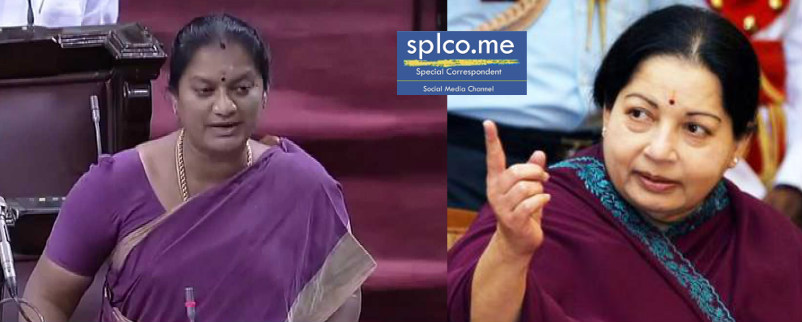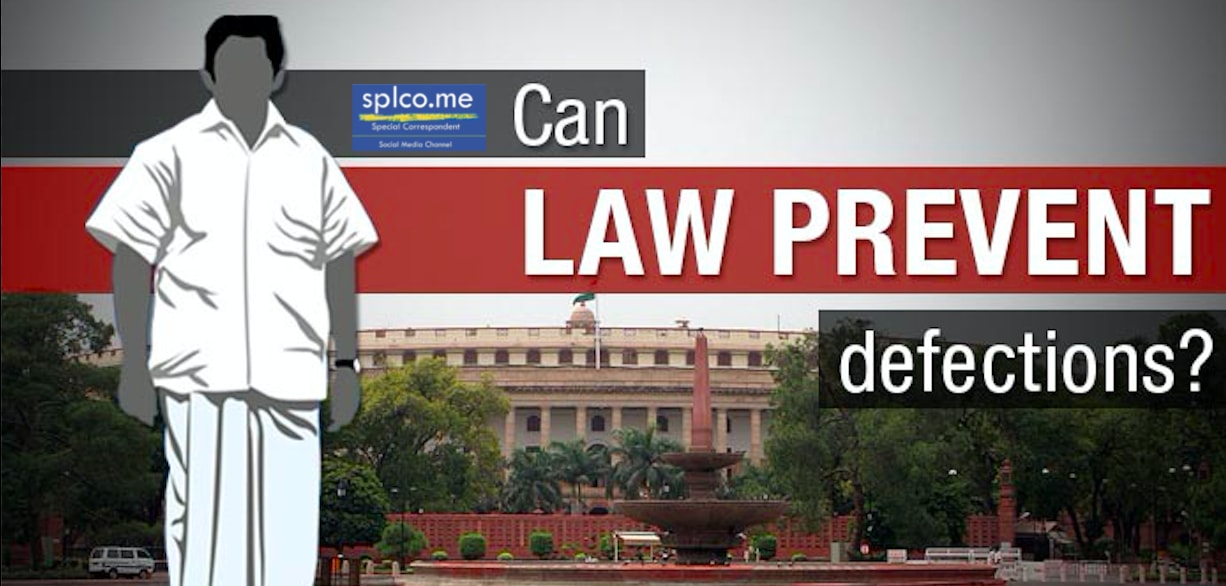The Tenth Schedule — popularly known as the Anti-Defection Act — was included in the Constitution in 1985 by the Rajiv Gandhi Government .
As per the 1985 Act, a 'defection' by one-third of the elected members of a political party was considered a ‘merger’ and sets the provisions for disqualification of elected members on the grounds of defection to another political party.

When a Member stands disqualified the decision on questions as to disqualification on ground of defection are referred to the Chairman or the Speaker of such House, and his decision is final.
All proceedings in relation to any question on disqualification of a member of a House under this Schedule are deemed to be proceedings in Parliament or in the Legislature of a state. No court has any jurisdiction.
However after Disqualification members can stand for elections from any political party for a seat in the same House.
A split in a political party will not be considered a defection if an entire political party merges with another;
if a new political party is formed by some of the elected members of one party;
if he or she or other members of the party have not accepted the merger between the two parties and opted to function as a separate group from the time of such a merger.
The Dinesh Goswami Committee on Electoral Reforms, the Law Commission in its report on "Reform of Electoral Laws" and the National Commission to Review the Working of the Constitution (NCRWC) all recommended the deletion of the Tenth Schedule provision regarding exemption from disqualification in case of a split.
Finally the 91st Constitutional Amendment Act, 2003, changed this. So now at least two-thirds of the members of a party have to be in favour of a "merger" for it to have validity in the eyes of the law.
"The merger of the original political party or a member of a House shall be deemed to have taken place if, and only if, not less than two-thirds of the members of the legislature party concerned have agreed to such merger," states the Tenth Schedule.
However the interesting aspect of this law is If a member activities been found inappropriate to the party and if the party through its whip whip send a petition on the alleged defection to the Chairman or the Speaker of a House for its member (s) disqualification or the whip or Party can also expel the members from the party. If this happens this does not necessarily mean that the members so expelled lose their seats in the House.
Due to this law during 1986 when J.Jayalalitha then Raj Sabha MP Revolted against her Mentor MGR then Chief Minister and written letter to then Congress Prime Minister Rajiv Gandhi requesting him to appoint her as Tamilnadu Chief Minister claiming the support of then 32 MLAs ., and this though angered ADMK Supremo then but could not take action against her due to infighting in ADMK but MGR did not suppress his anger but voiced issuing statement in ADMK Party daily then..
Interestingly during 2016 when ADMK MP Sasikala Pushpa revolted against J.Jayalalithaa ., accused Jayalalithaa hit her inside Poes garden in parliament . However Thanks to this anti defection act what maximum Jayalalithaa could do is to expel Sasikala Pushpa from the party .. But this does not stop the right of the member to lose her seat.
your reviews / critics are valuable to us . your news making skills can also be jointly done in our novel unique social media news making platform kindly get in touch with our team who vows to bring news told in its pure kind from splco Social Media channel for deserved people.


Comments
Comment on this article: